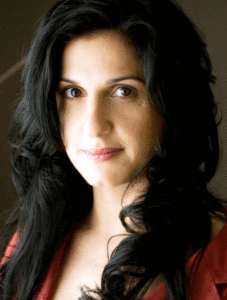by MAX SPARBER
Community News Editor
Israeli author Dorit Rabinyan, who will be in Minneapolis Oct. 23, found herself in a storm of controversy with her 2014 book Gader Haya, which has been published in English as Borderlife and as All the Rivers.

The book tells of a Jewish woman who falls in love with a Palestinian man when both meet in Greenwich Village. The novel sensitively tracks the conflicted relationship of the two characters. The Israeli woman hides the relationship from her family and fears her identity might be subsumed into her lover’s.
It is likely this last aspect to the book that inspired the controversy. Gader Haya was selected to be included in Israeli high school curricula, but then was censored by Minister of Education Naftali Bennett, who argued that the book might encourage intermarriage and assimilation.
Rabinyan, in an interview with the American Jewish World, recalls a quote by filmmaker Federico Fellini: “Censorship is advertising paid by the government.”
She describes the Israeli response to Bennett’s attempt at censorship, which included school principals publicly endorsing her book and a multi-week social media campaign during which Israelis bought her book, photographed themselves with it and then posted the images to social media sites. The book quickly became a bestseller and award-winner, but Rabinyan describes the experience as “a curse, then a blessing, then a curse.”
According to Rabinyan, the controversy forced the book to be a centerpiece in a discussion about the future of Israel. “It became a symbol of the threat to freedom of speech,” she says. “We are the only democracy in the region, but there is a huge fear that we have become more like our neighbors.”
Rabinyan adds that with the “nationalist waves that are sweeping the whole globe,” there is a real fear that Israel is turning its back on the liberal values that once defined the state.
Rabinyan is ambivalent about her book’s position in this debate for two reasons. First, as she bluntly puts it, she would “trade good sales for stable democratic values.”
But, secondly, the book was not written as a political manifesto. “My intention is artistic,” Rabinyan says, “and the scandal has taken over the artistic intentions.”
When she travels around on book tours, which she prefers to describe as conversations, rather than readings, she finds herself wanting to “remind my listeners that this is prose. This is a craft. It’s a work of intimacy and a quest to find meaning. It is all those things that are not politicized aspects of literature.”
Rabinyan discusses her hopes in coming to Minneapolis. “We Israelis are very used to stepping in each other’s sentences,” she says, hoping that the audience will feel comfortable having a conversation about her books, rather than expecting her to lecture. “I’m honestly looking forward to meeting my readers.
“I am very curious to visit Minneapolis,” she says. “I get to travel to places where my book was ahead of me.
“These are places I only read about or were in movies,” she says. “The heartland is very inspiring. It is very uplifting.”
Dorit Rabinyan will discuss her books on 7 p.m Monday, Oct. 23 at Darchei Noam, 2950 Joppa Ave. S., Minneapolis. For information visit darcheinoammn.org.
(American Jewish World, 10.06.17)




















